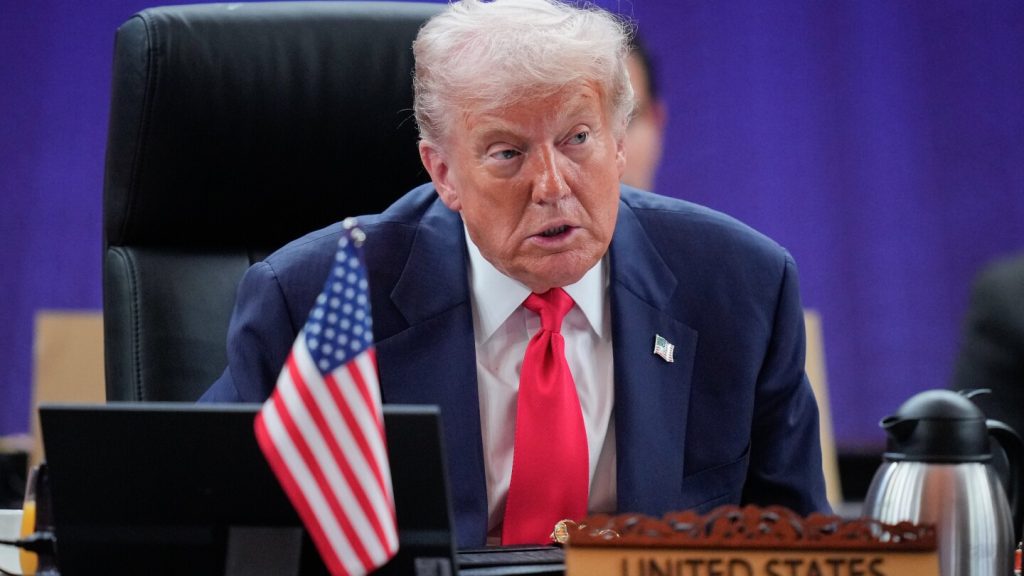KUALA LUMPUR, Malaysia (AP) — Tensions between the U.S. and China seemed to ease on Sunday ahead of a crucial meeting between President Donald Trump and Chinese leader Xi Jinping. Both sides indicated a potential agreement is close regarding trade between the two largest economies in the world.
Such an agreement would alleviate concerns in international markets, even if it falls short of resolving fundamental issues related to manufacturing disparities and access to advanced computer chips.
Recently, China limited exports of rare earth elements essential for technology, prompting Trump to threaten additional tariffs on Chinese goods. The possibility of escalating conflicts raises concerns about global economic growth.
China’s lead trade negotiator, Li Chenggang, announced that both nations had made a “preliminary consensus,” while Trump’s Treasury Secretary, Scott Bessent, remarked on a “successful framework.” Trump expressed optimism, stating both nations desire a deal and reiterated his intention to visit China in the future.
Bessent stated on CBS’ “Face the Nation” that the likelihood of new tariffs on China was “effectively off the table.” He noted agreements reached regarding halting shipments of fentanyl precursors to the U.S., alongside substantial agricultural purchases from China while delaying export controls on rare earths.
This potential agreement emerged during the ASEAN summit, where Trump aimed to enhance his image as a global negotiator. Nevertheless, his dealing methods have led to significant disruptions in both domestic and international contexts.
Trump’s Involvement in Regional Tensions
At the summit, a ceasefire agreement between Thailand and Cambodia was signed, with Trump prompting the nations to halt skirmishes along their border. The agreement will see Thailand releasing prisoners and Cambodia withdrawing heavy artillery, monitored by regional observers. Trump termed the achievement as something many believed couldn’t be done.
Focus on Tariffs
Trump held discussions with Brazilian President Luiz Inácio Lula da Silva about reducing tariffs amid complications arising from Brazil’s legal proceedings against Bolsonaro, a former president allied with Trump. However, he avoided engagement with Canadian Prime Minister Mark Carney due to unresolved tensions over trade policies.
Looking Ahead
Absent from the summit was Indian Prime Minister Narendra Modi, highlighting the recent strain in U.S.-India relations. Trump had previously celebrated mediating a conflict between India and Pakistan, a claim that irked Indian leadership, further complicating the trade dynamics between the two nations.
___
Associated Press reporters Josh Boak in Tokyo and Jintamas Saksornchai in Bangkok contributed to this report.



